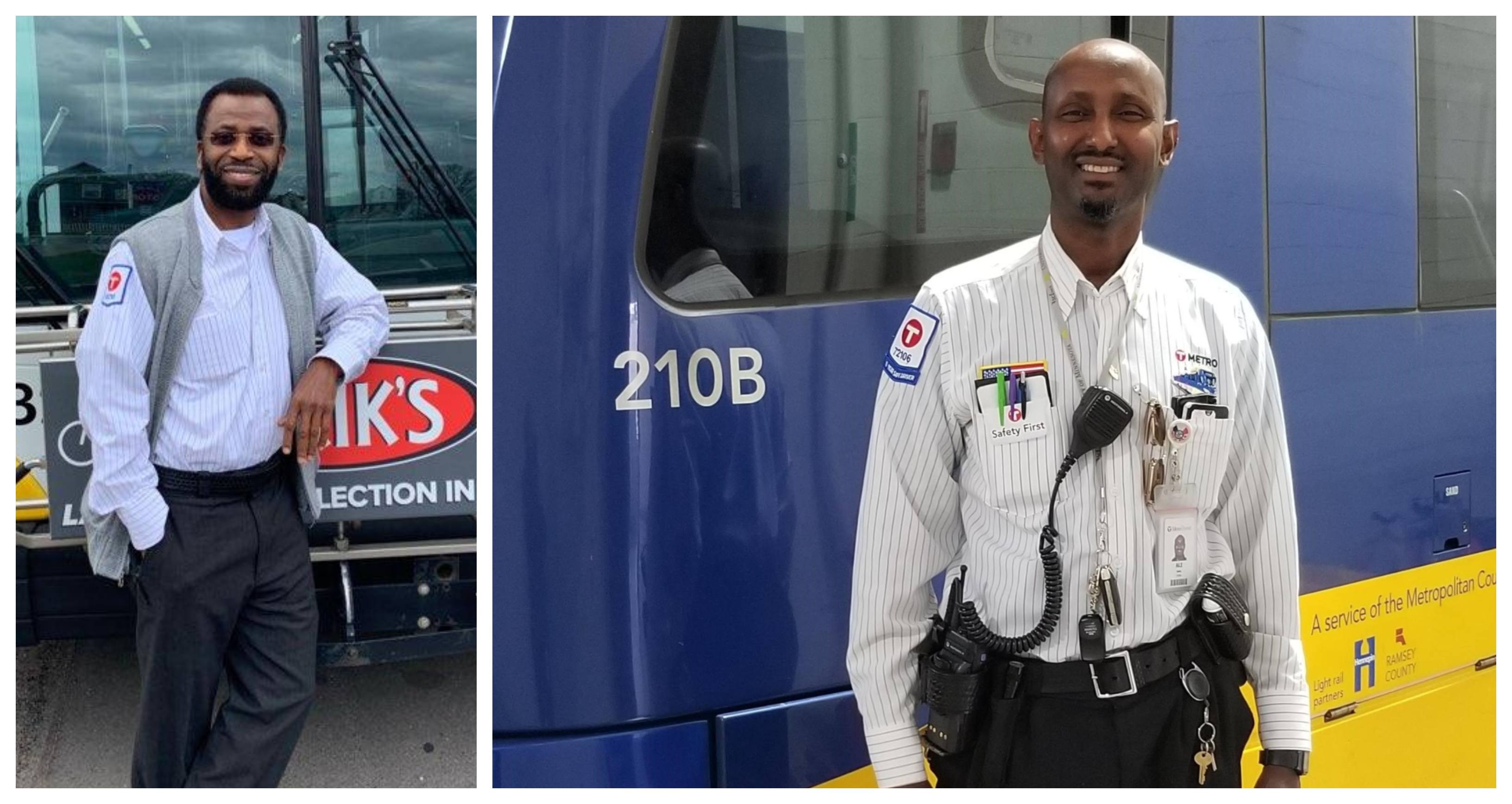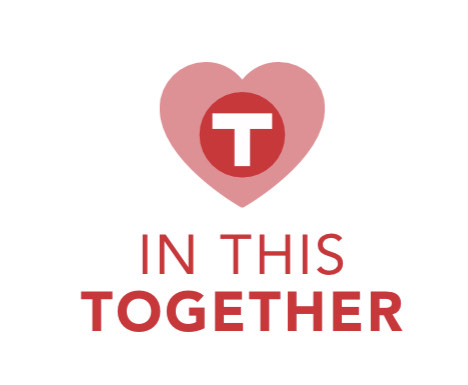
Ramadan is one of the holiest months of the year for Muslims. During Ramadan, Muslims fast during sunlit hours and spend extra time praying. This year, Ramadan continues through May 23. Several Metro Transit employees who celebrate Ramadan have had to adapt during the COVID-19 pandemic, including Train Operator Ali Jama, top right, and Bus Operator Mouctar Sow, top left. Read more about how the pandemic has impacted Ramadan around the world in The New York Times.
Ali Jama, Train Operator
How has the pandemic affected your day-to-day work?
I work second shift, so my day begins in the late afternoon and ends in the evening. There's usually a peak at the start of my shift, but now there's not too many people. As a light rail operator, I don't see the customers often because I'm in a cab. My routine for work hasn't changed much, except I wear a face mask and sanitize my hands often.
What’s it like working through a pandemic?
Beyond wearing a face mask and sanitizing my hands more often, the pandemic has fallen during Ramadan. As a practicing Muslim, I fast during the day and break fast in the evening during my shift. Usually this is done with family and friends, but during work and the pandemic, I eat alone and pray alone when I reach the end of the line or back at the light rail facility.
How has your life changed outside of work?
My life hasn't changed much, except making sure that my family and I keep safe social distance from others and that we over our faces and wash our hands often. They also break fast and pray at home during Ramadan as the mosques have temporarily closed.
Mouctar Sow, Bus Operator
How has the pandemic affected your day-to-day work?
As an extra board operator at Nicollet Garage, my schedule changes daily, but during the pandemic with less service, my schedule changed to what normally is considered a "Saturday schedule." I wear a mask and carry hand sanitizer with me all the time and constantly wash my hands. With no on-board fare payment, I also don't see customers much anymore. I just drive, which in some ways is good -- it keeps the bus moving for those using it for essential trips only.
What’s it like working through a pandemic?
Not much for me has changed in my work, except masks, hand washing, and no fare collection. However, during Ramadan, I usually head right to the mosque at the end of my shift to break fast and pray. However, mosques are now closed. I am still able to fast during the day, but instead of breaking fast with family and friends at the mosque, I go home to my wife and three kids. We break fast and pray at home instead. It is still a good way for us to observe Ramadan, but it's not the same as the larger community getting together.
How has your life changed outside of work?
The pandemic has made it impossible to see family members from my home country of Guinea in West Africa. Ramadan is a time when I usually get to see them, like Thanksgiving for most Americans, it's a time when you get together with relatives you don't see often. And I can't imagine the big final celebration to mark the end of Ramadan called Eid will be the same. But I hope it can and the pandemic ends soon.
Show your support
|
 Metro Transit is playing an essential role in the region's response to the COVID-19 pandemic. Please consider showing your support for our essential workers by: Metro Transit is playing an essential role in the region's response to the COVID-19 pandemic. Please consider showing your support for our essential workers by:
|